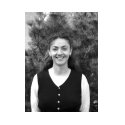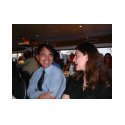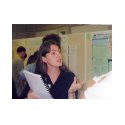Margarita Russina
Your studies? Scientific field?
I am interested in the dynamics-function relationship in disordered and nanostructured materials, such as glasses, solid electrolytes, clathrates. Such systems are very complex and often the motion of the atomic or molecular groups defines at the end the global behavior. Neutron spectroscopy is very important here, thus there is an organic link to the second point of my interest – development of neutron scattering methods, in particular the spectroscopy at pulsed sources.
Neutron-scattering background?
Time-of-flight neutron spectroscopy. At university I studied semiconductors with Raman spectroscopy, but during my PhD learned neutron scattering. The wealth of information what you can get with this method fascinated me and I become a fan of neutron spectroscopy since then.
Step by step to my position?
I studied physics at Moscow State (Lomonosov) University. After my PhD at Hahn-Meitner-Institute in Berlin I went to Los Alamos National Laboratory. I worked there on developing new methods of neutron spectroscopy first as a Postdoc and then as a staff member. In 2004 I returned to Hahn-Meitner Institute and become responsible for TOF spectrometer NEAT.
Publications?
Currently 44 peer reviewed and 2 patents
Prizes
HMI-Promotionspreises 1999
Young scientist award in 1999 at ECNS in Budapest
Los Alamos achievement award in 2001.
Percentage time for your family/ work/ for you?
Difficult question. Since my first daughter was born during my diploma work and the second during my PhD it was not easy to find a balance. I learned long-term planning. We have family calendar, where everybody has his own column (even our cat) and where we put all our appointments well in advance. It helps. Having the family also pushes to use the time most efficiently.
The time for me is 1.5 hours/ week when I have my flamenco class.
Who or what is your mentor or greatest inspiration?
Feri Mezei – endless creativity.
Jim Rhyne ( LANL) – how to manage difficult situations and stay calm.
Paul Sokol (Indiana) – persistence and survival.
My grandmother – love and live the life, does not matter what.
What is the most challenging thing you have faced in your career?
My return to Germany in 2004. Surprisingly it was a real cultural shock, much more difficult to deal with since I became older.


 Back to previous page
Back to previous page
